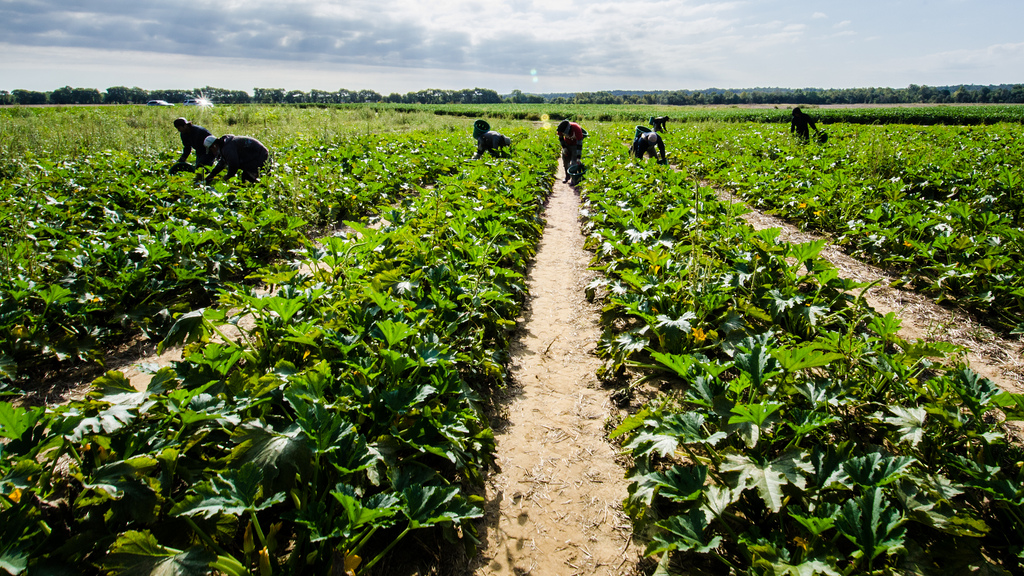Post-Brexit horticulture growers could benefit from Government support to help them invest in new equipment and technology, according to the Minister of State for Agriculture, Fisheries and Food, George Eustice.
In an interview with Agriculture Horticulture Development Board (AHDB) magazine The Grower, the minister discussed post-Brexit labour, crop protection and emerging technologies and possible future funding for the sector.
With just over half a year left until the British exit from the EU, he urged the horticulture industry to look forward to the future.
Business post Brexit
He expressed his enthusiasm for future market prospects now that Britain will no longer be subjected to the “process of European integration”.
“There is a great opportunity to reinvigorate the sector,” he said.
“We have become over-reliant on horticulture produce from the Netherlands and other countries in recent years.
“There are opportunities for us to displace imports currently coming from the European Union within the UK.
Eustice admitted replacing the CAP will be a major concern for post-Brexit Britain. However, he added this would also offer the opportunity to legislate ourselves “without having to endlessly worry about EU decision-making processes”.
He said future financial support would involve funding for certain producers of trees and woodland in particular.
Labour shortages
UK horticultural businesses have been reporting that access to seasonal labour has become a serious challenge.
The National Farmers Union’s (NFU) labour provider survey revealed that there was a 29% shortfall in September 2017, with levels expected to be around similar levels this year.
Peak strawberry season has seen an increased amount of pressure being placed on growers and there is some fear that this will escalate once access to European labour becomes limited.
Britain will continue to have access to European labour until 2020, so for the next two to three years. “There is absolute clarity over having access to labour,” said the minister
According to the AHDB, the horticulture industry has been assured by the minister that there will be sufficient labour in place following the end of this “transition period”.
Emerging technologies
After 46 years, the UK is about to emerge into a world that is wholly unfamiliar and the Farming Minister offers assurance for all those involved in agriculture.
According to the AHDB, horticulture has been previously unsupported by the Common Agricultural Policy (CAP), however, future policy may provide support for investment in new technology.
“There’s an opportunity for horticulture to get access to that kind of support in the future in a way that it perhaps didn’t in the past,” suggested the minister.
The Farming Minister, however, remains a “realist” about the impact technologies will have on production in the short-term and the possibility of full automation of complex horticultural tasks, such as cut-flower harvesting.
“Mechanisation will be partial, rather than complete, with technology helping to speed up handling by enabling pickers to not carry trays up and down rows manually, for instance,” he said.
Plant protection
The minister said plant protection would be one of the biggest challenges facing the sector in the future.
He said the use of synthetic chemicals and genetic modification needs to be reevaluated in order for the industry to grow sustainably.
“We are losing more and more plant protection products and pesticides as science evolves and highlights further concerns…
We need to develop a different and more holistic approach to the way we tackle pests and diseases.
“The solution to this is fresh people and new blood coming into the industry,” he said.
As a solution, he suggested growers may need to take inspiration from the ‘quad system’ approaches used in New Zealand, Canada and the United States.



